
The Prolific Hub Podcast
The Prolific Hub Podcast is a digital archive & celebration of all things creativity, purpose and alignment.
The Prolific Hub Podcast
Unlocking Potential with Personality Tests & Self-Development | Ep. 40
That personality test might just have a profound impact on your self-awareness, team dynamics, communication style, leadership strengths and more. If you're curious about how different self-discovery tools can support you creatively or professionally, this episode is for you.
Watch this episode on YouTube!
Resources:
- Myers Briggs/16 Personalities
- Enneagram
- Human Design (exact birth time or estimate required; birth location required)
- Look into your natal chart -- you may be surprised to learn something new! (exact birth time or estimate required; birth location required)
- If you're looking for a fresh start in a new location, look into astrocartography!
- Take the DISC assessment to learn more about your team personality and work style! (Not discussed in episode)
- Learn more about human design: Ep 31: Human Design for a Soft, Successful, Feminine Lifestyle
For women and menstruating folx, consider learning more about cycle syncing!
- Good Moms Bad Choices: Debunking Menstrual Myths feat. The Agenda Period
- Simone Saunders / @thecognitivecorner: Cycle Phases IG Post
- Hate the Dot: Cycle Syncing for Creatives
Enjoy the episode?
- Share it with friends!
- Send a voice note or text!
- Rate & review the podcast!
- Support the show with a Recurring Gift!
Follow the @theprolifichubpod on your favorite SM platforms!
Watch full interviews here on YouTube!
Join me over on Substack!
Check out my favorite brands and snag a discount!
Grab a guided journal here!
Are you a creative, solopreneur or entrepreneur who’d like to be featured on The Prolific Hub Podcast? Let me know here!
Hosted by Buzzsprout. See the Buzzsprout - Privacy Policy here.
I'm here to make a case for why I strongly believe that those personality tests are not just for your personal life, but they can not care about those things or need those things to support them.
Aliya Cheyanne:I completely get it. For those of us who feel strongly about our intuition and its ability to guide us and stare us, and we just have this inexplicable inner knowing that keeps us so grounded in who we are and what we stand for at all times and you feel like maybe those personality tests are frivolous and unimportant. I hear you and I understand it. For those of us who are constantly on a journey of learning and evolving and are always eager to know more about ourselves and other people around us, who are open to tools that help to support that, I hear you. For those of us who maybe have never heard about certain tools or are curious and might like to try it and are open, I hear you. Whatever the circumstance, whatever the situation, I am just personally a strong believer that personality tests are cool tools. Not only can they help you learn more about yourself as an individual, or learn more about the people in your life or how you respond to certain situations aspects of your personality you might not be comfortable with or familiar with that you'd like to lean into more and explore more. I think there are a lot of tools that can help us do that. I don't know all of them, but I know a few. I've taken a few and I would love to make the case for taking them and just being open to doing the small quiz and reviewing your results and seeing whether or not you feel like they align with who you are, who you present to be in the world, who you know yourself to be, or if you feel like the results are trash and they don't align with who you are as a person trash and they don't align with who you are as a person. No matter the case, I just think being open to them can not only help us personally, but they can also help us in our business lives, and one quiz in particular that I like a lot, that I've taken a few times over the years, is definitely Myers-Briggs, also known as 16 personalities. So there are all these different personality types and combinations and you can do a quiz to learn what type you are, and for me, my type has never changed. Anytime I take this quiz, I'll usually do it years in between each other. I think the first time I did it I was in the early stages of undergrad and then maybe I did it again my mid-20s and I want to say I did it again around 30. Yeah, my personal results have never changed. Some people feel like they've taken it at one stage in their life and maybe if they take it again years later, their results vary or their results change. Everyone's results are different. There are 16 types, with the definition for Myers-Briggs 16 personalities.
Aliya Cheyanne:The Myers-Briggs type indicator is a pseudoscientific self-report questionnaire that claims to indicate differing psychological types. The test assigns a binary value to each of four categories introversion or extroversion, sensing or intuition, thinking or feeling and judging or perceiving. So there are 16 combinations of these basic groupings that I just shared. I personally have always gotten the result INTJ, gotten the result INTJ. So INTJ stands for folks that fall in the introversion category, the intuition category, the thinking category, andfp, esfp, esfj, infj, infp, enfp, enfj, intj. As I mentioned that, im, intp, entp, entj.
Aliya Cheyanne:For folks who are INTJs like me, terms that might help to understand that combination are innovative, independent, strategic, logical, reserved, insightful, driven by their own original ideas to achieve improvements, and I, on the one hand love this kind of stuff because when I meet other people who do these kinds of quizzes, I always love to have conversations about it, like what it means for me as an INTJ, whatever combination they are. And it's come up in professional spaces, in jobs that I've worked at, like among colleagues. It's also come up in relationships because I usually I don't want to say maker force, but I usually like for whoever I'm dating or whoever I'm seeing to like do all the quizzes Like obviously go through my own period of observation and learning the person. But I also love when A they're willing to do the quiz because I'm interested in it, even if they don't care about it, and I can analyze the results for myself. So I love 16 personalities slash Myers-Briggs because, whether or not it's a legitimate scientific way of understanding our personalities, it's a fun way to explore aspects of ourselves that we may or may not be familiar with, we may or may not identify with, we may or may not be interested in. So I say all that to say that I think it's really cool to just know the results and know how that shows up for you personally, but also relationally, in friendships, in family dynamics, in romantic dynamics, whatever the case may be and you know also professionally, like whether you are running and owning your own business and you're working with a team that is supporting you with your vision, or if you are a solopreneur and you're learning more about how you function as a business owner, what works for you, how you show up in work. Then, also professionally, maybe you're working somewhere and you're trying to understand the dynamics between you and other co-workers, or where you show up more strongly in certain areas versus other areas that you want to work on and improve. Personality tests like this can help you with that understanding, and I think that's really cool and really fun.
Aliya Cheyanne:Another personality test that I actually learned about, I want to say, more recently, because I learned about it during the lockdown. I don't remember knowing about it before, but I connected with a friend on it a lot because she was really interested in it prior to me. She had already known about it before me, and then when we both found out that we're both interested in it, we bonded over that even more. And then, when we both found out that we're both, like, interested in it, we bonded over that even more, and that is Enneagram. So I want to say I could swear that when I first took the Enneagram quiz I got like a seven personality type. I don't know, maybe I'm wrong, I don't remember. I honestly don't remember because I was like so up on it when I first took it and just trying to like learn every little thing and explore every little thing, and then I completely fell off with it. So I just took the quiz again recently and I got a four and I'm like I can't remember for the life of me, like was I a four before and I just don't remember. Or maybe even if I wasn't a seven, maybe I just gravitated to, I don't know. Anyway, enneagram is another personality test that you can take to learn more about yourself. And maybe you know friends in your life. If they're interested in taking it, they can take it too, and you can learn a little bit more about their personality style and how that shows up in your friendship dynamic, your romantic dynamic, et cetera, and especially how that shows up in your work. So I'm just going to read a definition about what Enneagram is for folks who may not be aware. This is from truitycom.
Aliya Cheyanne:The Enneagram is a personality typing system based on ancient spiritual traditions, which describes people in terms of their core motivations, desires and fears. The word Enneagram comes from the Greek enia I don't know if I'm saying that right meaning nine, and grama meaning something drawn or written, kind of like the philosophical translation, I don't mind what it means. So there are nine types. The types each mean different things. So one is the strict perfectionist. Two is the considerate helper. Three is the competitive achiever. Four is the intense creative, which apparently is me now, which this recent quiz I've taken in my results. Five is the quiet specialist. Six is the loyal skeptic. Seven is the enthusiastic visionary. I could have sworn. Seven is what I got the first time I took the quiz, but I honestly can't remember. Eight is the active controller. Nine is the adaptive peacemaker, and you can take the quiz and see which one you are and whether or not what it stands for.
Aliya Cheyanne:If you feel like that aligns with who you are as a person you may not, or you might you might learn something new. It might help you to understand something you've been maybe struggling with, to either accept about yourself, or maybe something you can identify with that you haven't been able to put words to in the past. I think all of these tools are really helpful for that, and again, not just personally. I think they can absolutely help professionally and I think they can absolutely help solopreneurs and entrepreneurs. For me personally, apparently, I'm a four now, so this Enneagram type is the individualist in terms of personality type. I'm just going to read a quick thing. The quiz I took sent me like 15 pages of information. I'm not going to torture you all through that, because it's specifically about me and I would love for, if you don't know what type you are, for you to take a quiz and look into what type you are, For type four, for anyone who might also be a type four, or maybe if you take the quiz and you discover that you're a type four like me, hey friend, fours have delicate and complex personalities.
Aliya Cheyanne:Their identity is closely tied to their feelings. Since feelings are very prone to change, fours often struggle to understand who they really are. Therefore, they focus on differences, as differences are a replacement for healthy boundaries between other people and them. I have to decide if I'm going to Listen, not how I feel about that. If I don't edit this part out, I feel a little attacked. Anyway, though they seem distant and detached, enneagram 4 just needs space to discover who they are before they are ready to connect with others. They often feel they are inherently different from others. I'm an Aquarius, I'm an alien, anyway, both in a positive and negative way. For example, they may believe they are geniuses in one area, while also believing they're ultimately flawed in another. Our core values are around uniqueness, true meaning, soul searching, soulmates, self-expression. I will be diving into this more, but yeah, apparently that's my type and I think it's really interesting.
Aliya Cheyanne:I'm revisiting Enneagram because, like I said, I feel like when I first took it, I got a different result than I got now. Like I honestly do not remember what my initial result was. I could have sworn it was seven, but I might be wrong. Either way, this kind of reiterates the point I made earlier that sometimes taking these things, it's good to take them at a certain time in your life and then maybe revisit it some years later, because we change, we grow and we evolve. Like maybe the state that we are in mentally and physically and emotionally and spiritually and all these things when we take it one time varies from when we take it three, four, five years later. So I think this is interesting for me when it comes to Enneagram. But Enneagram is another personality test that I suggest folks look into if you haven't before, and I think it's a cool type of test to help you just discover a little bit more about yourself, maybe to reaffirm something you already knew or to learn something you hadn't known before.
Aliya Cheyanne:I feel like maybe it's just my algorithm, maybe it's yours too, but I feel like the phrase shadow work is so overused online sometimes now, but essentially doing shadow work is discovering those parts about yourself that we typically our darkest and ugliest parts, when essentially those are the parts that can really heal us and transform us and bring us fully into our full self and our full being. And, as you heard in this moment with me just now, if I don't edit that part out with my reaction to that part of the definition of a four for Enneagram, that felt a little cringe and that felt a little icky, but maybe that also is pointing me to lean into that and to think more deeply about it to see why that was my visceral reaction to it, versus me just being like, yeah, that's me, or actually no, I don't resonate with that Like why did it just kind of make me feel icky. That's something to lean into and think about and I think, when it comes to personality and quote unquote, shadow work and things like that leaning into the things that make us feel icky and cringe, when it comes to identifying aspects of ourselves that we don't typically like to acknowledge and bring to the light, I think that's important in fully developing as a person. I just went off on a tangent Check out the Enneagram quiz. See if the message you get resonates with you or if it doesn't. I think it's a really cool self-discovery tool that's worth leaning into. Okay, what else? Human design.
Aliya Cheyanne:So I have mentioned human design a few times on this podcast and in different episodes, either solo or with guests. Very briefly, in an episode with a guest recently, ashante Rene, she mentioned human design. I think we talked about it a little bit with LaVon Briggs, who was a guest on the show, and I believe she mentioned that she was a generator. I mentioned that I was a projector and I love human design. I am by no means an expert. I have just been trying to process my own chart for a very long time, like, let alone looking at anyone else's. I can't help anybody read theirs, I'm still trying to read mine, but human design in the way that you would need your birth time and location for your astrological birth chart or your progress chart or anything like that. You also need it for your human design. Or at least, if you don't have the exact time like if you're not able to look at your birth certificate, you don't have access to your birth certificate to look at the exact time that's listed on there, even a rough approximation or estimate is still good. You need the location of where you were born, like the city and the state, the country, etc.
Aliya Cheyanne:Human design pulls from multiple tools. It pulls from an ancient Chinese spiritual system. It pulls from astrology, part of human design. You know they call it energy centers in human design. Really it's chakras, like they're chakras, chakras.
Aliya Cheyanne:I feel like everybody says it wrong. We say chakras, it's chakras. They say ch, not sh. Just the rest of us in the West west, we say, because we don't know any better anyway, and there are so many of them. Right, we, only we. When we think about them, those energy centers, those chakras, we mostly focus on our crown, our third eye, our, our throat, our heart, our root and our sacral. I feel like I'm forgetting one. Let me look. Let me look. I'm pulling up all of them. Okay. So yes, crown, third eye, throat, heart, solar plexus that's the one I missed. I knew I was missing something in the tummy region, sacral and root. Anyway, human design also incorporates those to a degree as energy centers, and I think that's really cool. So I'm going to read a definition of human design.
Aliya Cheyanne:Like what is human design? Again, I'm not an expert, it's just a tool that I found that I really liked, that I've been using to learn more about myself. So human design is a spiritual technique that combines astrology, kabbalah, I Ching and other elements to help people understand how they use their energy and make decisions. It's based on the idea that each person has a unique energetic blueprint or design that can be decoded using their birth data. The resulting diagram, called the human design chart or body graph, can help people understand how they were built and how to respond to the world. Human design was developed in the 1980s by Robert Allen Krakauer, who also went by the name Ra-Uru-Hu. Okay, lots of information. You can look more into human design if you're interested. But I really like human design.
Aliya Cheyanne:I have primarily spent the bulk of my energy learning about my type. So there are multiple not multiple. There are, yes, there are multiple types and you fall into one of those categories. You can be a manifesting generator. You can be a generator, you can be a projector, you can be a reflector. You could just be a manifester. I think that's really cool. And then, in addition to those types, there are other aspects of your profile and your chart that go into human design. I'll give an example for myself because, again, I am still learning for myself. I'm not the person to go to to explain every single type, but I do think it's worth looking into and learning more about for yourselves.
Aliya Cheyanne:In terms of my human design chart, based on my birth time and location, I am a projector. My profile is 2-4. There are different profile nations that you can have and each one is unique to your type and your chart. So some folks might be like a 1-4. Some people might be a 2-4, like me. Some people might be a 2-5. Some people might be a 3-5. Some people might be a 3-6, a 4-1, a 4-6, a 5-1, a 5-2, a 6-2, a 6-3, and so on and so forth. So a 1-3 is the investigative experiential. A 1-4 is the investigative opportunist. A 2-4, like me, is the hermit opportunist, and I'll read mine, hermit Opportunist, based on this particular website. All of them will generally have the same idea, but they may use different language depending on the site that you use. This is humandesigntoolscom.
Aliya Cheyanne:For me, a 2-4 Hermit Opportunist, there is a tension between the 2 and the 4, which is very real. For me, there is a tension between the two and the four, which is very real. For me, you're never quite sure if you want to be alone or if you want to be out among your network of people. It's important for you to create a safe and peaceful resting environment from which to go deep into your own internal processes and to get the rest that you need, and, equally important for you to develop a close community of people who will see your natural gifts. These gifts and talents are so inherent that you usually can't see them yourself, which is why you'll need people you trust to draw them out of you. That is 1000% real.
Aliya Cheyanne:For me, the struggle is real between wanting my time and my space and my rest to myself and actually connecting with people and building and growing community, and I feel like I go through waves of wanting to be solo and rest and kind of be on my own, and then also wanting to be in connection with people that I really vibe with, and I think finding a delicate balance has been my mission, leaning heavily into making sure my environment is restful and peaceful, because that is very important to just my energy and how I function and show up in the world. After that there's the 2-5, the Hermit Heretic, the 3-5, the Experiential Heretic, the 3-6, the Experiential Role Model the 4-1,. Opportunist Investigator, the 4-6, the experiential role model, the 4-1, opportunist investigator the 4-6,. Opportunist role model, the 5-1,. Heretic investigator, the 5-2,. Heretic hermit, the 6-2, role model hermit, the 6-3, role model martyr or role model experiential role model, martyr. And that is just again, one aspect of it. So one aspect of it is your type, so those terms you talked about projector, generator, manifester, manifesting generator, reflector. And then there's your profile, which are the numbers.
Aliya Cheyanne:For me, I'm a two-four. And then there's your inner authority in human design. Your inner authority in human design is how you make correct for you decisions about big things in your life. It's your knowing, your wisdom, your intuition, and that leans heavily into your um. You know just how you show up in the world and you make decisions everyone's will be different based on your test results and what you get. But there is the emotional solar plexus, the sacral, the spleen, the ego and the self-projected in human design under this.
Aliya Cheyanne:For me personally, my authority is spleenic. For the spleenic authority, the spleen is our oldest awareness center. It's about survival, instinct, intuition and fear. The splenic authority is about body consciousness and the only authority designed to make decisions in the moment. With a defined spleen, you have an instinctive voice that's constantly guiding you and keeping you safe. You know exactly what's right or wrong for you, moment by moment. It can feel like a quiet voice, an inner knowing that can't be explained to others. You are designed to be deeply present in the now. Notice, whenever your mind tries to override your splenic hit.
Aliya Cheyanne:That's for me, or anyone else whose authority might be splenic. That means 1000% for me that I have to absolutely listen to my intuition and it really does present itself as I don't. It's not like I hear a voice, but I'll be in a moment that may or may not feel comfortable or safe for me and there will just be a phrase that pops up in my head that will literally be like you need to leave or you need to move over to the right this way or stand up right now, look around, pay attention to your surroundings, sit back down. You know little things like that that just pop up for me, that make me very mindful. So it's important for me personally to be present and to always listen to my intuition. My intuition has literally saved my life in certain situations, and that hasn't always been the case. You grow into learning to listen to it as you become more in tune with yourself and as you get older. Definitely, there are several instances of when I was younger where I had no idea what the heck intuition was and I was not listening to her because I was doing risky ass shit. Yeah, I think that shows up a lot in how I move through my professional life and my career, but also now how I move through my personal life. Trust myself to know what's right for me, and that's something that comes up for splenic authority. Emotional authority is different. If that's something that you get with an emotional authority, your solar plexus is defined. It's the center for emotions, feelings and sensitivity. You're designed to experience the full spectrum of emotions. You're always riding an emotional wave. There's way more information about that, but if you take the test and you learn that, you know that's your authority. I highly encourage you to learn more about that and to think about how that shows up for you personally and in your professional life, in your creative life, in your solopreneurial life, in your entrepreneurial life.
Aliya Cheyanne:Some folks are sacral authority. If you have a sacral authority, you have consistent access to life force, energy. This center is the energy hub for pleasure, creativity, reproduction, sustainability and sexuality. Your sacral is designed to respond to life. It's full body wisdom, a primal response. Some have described it as a gut feeling that expands throughout your body. When you're excited about something, yes, and contracts. When you're not, no. Because this is not an awareness center, your responses are not meant to be rationalized. It's simply here to signal you on what you do or don't have energy for, because once it's committed, it'll want to go all the way. I say go. Authority sounds like an exciting authority, so shout out to you if you got that one.
Aliya Cheyanne:I talked about explaining ego authority. With an ego authority, you have the heart center defined. This is the center for willpower, ego drive, desire and worthiness. The ego authority is about being connected to what you want and your truth. A lot of us have been conditioned to rationalize or even justify your desires. If you have this center defined, there might have been some resistance or guilt as you pursued what felt right to you and unable to explain to others. So that's something to think about.
Aliya Cheyanne:If you have an ego authority, if you have a self-projected authority, if your authority is self-projected, you're a projector who has the throat and identity G-centers defined. The identity G-center is the energy hub for direction, love, self and purpose. The throat is the center for expression, communication and action. Having this as your authority means you're here to listen to what you have to say. Being able to hear your own voice as you express gives you clarity. So I just think that human design is really interesting and I highly encourage people all the time to find out their human design and to see if anything resonates for them, what resonates with them. The site that I was just reading from is wholeandunleashedcom. Wholeandunleashedcom, and those were their definitions of the different authorities.
Aliya Cheyanne:That I think is really cool, and there's also a strategy for your human design, and everyone's is different. As a projector, mine is wait for the invitation, and that means a lot of different things. It could literally be an invitation to do something, but also like maybe someone seeking counsel or advice from me, like and waiting for that opportunity to share, versus just diving into it off the bat, because that's what I naturally feel called to do and everyone's is different. Every strategy is different for each type and, yeah, there's an incarnation cross for all of the different human design results. Mine, personally, is the right angle cross of the four ways 19 slash 33 and also 44 slash 24. Don't ask me nothing about that, because that is an aspect I have yet to fully comprehend and understand. Because that is an aspect I have yet to fully comprehend and understand. But luckily, whenever you take the quiz, you know the results explain it pretty thoroughly. The aspects of human design that I'm always most interested in is the type, the profile and the strategy and the inner authority. So I highly recommend that.
Aliya Cheyanne:If you have not heard about human design before, maybe you have, but you've never taken the quiz or maybe this is like new information, you never thought about it, you never thought it'd be useful or meaningful. I think it's worth it. I think if you ever have downtime or spare time and you're curious and you want to check it out, there's nothing wrong with that. And again, you take all this information with a grain of salt and you see if anything resonates with you, like maybe there are going to be some things that show up in your results that don't totally surprise you because it feels very aligned. Or maybe there's going to be some things that show up in your results that you feel are just out of pocket and are not you at all. Maybe there are going to be other things that show up that kind of are a punch to the gut or a slap to the ego or, um, you know, knock the air out of you a little bit, because maybe it's an aspect of yourself that you don't want to acknowledge or that you've buried. But the only way to be a full person is to integrate all aspects of yourself and leverage the things that you don't want to bring to light and alchemize them and use them for your own good and for your own power and for the good of others. I definitely think it's worth looking into and them for your own good and for your own power and for the good of others. I definitely think it's worth looking into and exploring for your own.
Aliya Cheyanne:I've mentioned astrocartography a couple of times in the past. It's like locational astrology, as LaVon put it in the episode featuring her as a guest. She called it Astrology of the Land and I really like that. But it's the idea that there are certain astrological lines you know in our birth chart and when you use your birth information the time and the location it kind of spreads these lines out across a world map and, based on what you're seeking whether that be success in career, whether that be love, whether that be better health and whatever the case may be depending on where those lines fall for you, you may or may not have a stronger possibility of attracting or achieving those things, depending on where you are. Everyone might not be into that or interested in that. It's something that I've become more newly interested in.
Aliya Cheyanne:But I again take that information with a grain of salt because I got a reading that had me all over the place. It said that New York is a great place for me. Anyone who knows me personally knows that I do not like the city. The moment in the day that I can get out and have a lot of land around me and have no neighbors for 20 miles in any direction and I can look off in the distance and see snow-capped mountain views and maybe a lake between my home and the mountains. The day that I can have that and the day that that can be my reality, that is what I want. I do not want to be in the city, but apparently the city is a great place for me.
Aliya Cheyanne:I also got that LA would be a great place for me, which I think it would have to be outside of the downtown area if I ever did that. Because I went to downtown LA like one time and I energetically it's not my tea, but once I got outside of the downtown area, like I understood the feeling that people get and the vibe, so that was interesting. But I also got places like freaking Minnesota and like I think I got one of the Dakotas too and I was just like wait a minute, wait a minute. On the one hand, considering I've thought about places like Wyoming. Maybe it makes sense because that's one of the few ways and places where I can have the environment that I really would love. Yeah, otherwise, no, no. So astrocartography is one to think about Personally. Out of all of the little quizzes and types of things that I've mentioned, that would be the last of my list. Get through the others first and then y'all know I love talking about astrology.
Aliya Cheyanne:I am not an astrology expert, I just like it a lot. I think it is an incredible tool to help us understand ourselves and other people. Personally, I don't care what anyone says Well, not anyone. I don't care what the people who are anti-astrology have to say, because, especially if you're anti-astrology but you believe in God, like that, doesn't make sense to me. But anyway, astrology your birth chart is based on the position of the sun, the moon and a number of other planets and stars at the exact precise moment that you are born. If the moon can impact the tides on this planet and our oceans, if our bodies are made of 70% water, just like the earth we live on, you cannot tell me that the moon and the stars do not impact us. I don't care what you say. So for those of us who are into astrology, I think astrology is a really interesting tool that can be used and leveraged to better understand ourselves.
Aliya Cheyanne:You don't have to do your birth chart and wholly identify with every aspect of it, with every aspect of it. You also should not be using your birth chart to minimize or satiate or pacify aspects of yourself that actually need work. Your astrology chart to your birth chart is not an excuse for bad behavior, and I think that's part of why astrology gets such a bad rep, because people will be out here talking about well, that's how I am because I'm an Aries, or that's how I am because I'm a Leo. Or that's how I am because I'm a Pisces, or that's how I am because I'm a Scorpio. Or that's how I am because I'm an Aquarius, or that's how I am because I'm an asparagus, because you know people out here be making fun of you, know you get it. If you get it, you get it. Why I said asparagus? But I do think that astrology can be an incredible tool to better understand ourselves and our relations with other people.
Aliya Cheyanne:I am an Aquarius sun and an Aquarius rising. I am a Sagittarius moon. My Venus, mercury and Mars are all in Capricorn. All of the planets represent different things, so your moon represents your emotional body. My emotional body is a little bit more fiery. My emotional body loves knowledge and wisdom and to learn and to explore. I resonate with those aspects of my Sagittarius moon. I don't resonate with every aspect of my Sagittarius moon, but those are some things that stand out to me, that resonate with me. My Aquarius sun, in my case, my sun and my rising are the same, so how I present to the world and who I think I am as a person are pretty aligned in that sense. And then you know your Mercury, your Venus, your Mars, like.
Aliya Cheyanne:There's so many other signs, but those are the ones that I tend to focus on. Your Venus is like how you love and how you like to be loved. Mine is in Capricorn. Security is very important to me, child, whether I'm creating that for myself or the people in my life are helping me to achieve that. Okay, in astrology, your Mars represents your personal drive, your will, your sexual energy. Mine is in Capricorn.
Aliya Cheyanne:I do know that Capricorn is the goat. Capricorn is a sign of determination. Capricorn is also a sign that is really focused on security and structure. It can be kind of a rigid sign. I resonate with aspects of a Capricorn's drive in terms of like how I take action to achieve the things that I want. Mercury is associated with communication and expression and cognition. My Mercury is in Capricorn and I feel like that resonates in a sense. I have moments where my communication is not the softest or the easiest and there are aspects of that that resonate with Capricorn energy. But then there are other aspects of it in terms of the fact that I may think a lot before I speak, or I might receive information and process it a certain way before I spit it out and utter it in other capacities. I think that's interesting. It's not just the signs, like there are houses as well, and each house represents different things. And learning more about not just the planetary placement or the sign placement, but learning about the house placement, learning even deeper about that and when you're thinking about what degree the sign is in in that house, in that placement, in that planet, like it just goes on and on.
Aliya Cheyanne:I personally like tools that help to break things down for me and make them extraordinarily simple. So some people are fans of different platforms. Some people use the Chani Nichols' app, like the actual Chani app. Some people use that. Some people use Time Passages, which is a good one, like I'm also big on like aesthetic when it comes to some of these apps, so that's not my favorite one aesthetically, but it does go pretty deep on every aspect of your chart, so I like that.
Aliya Cheyanne:A lot of people play the pattern. I get it. A lot of the real astrologers play the pattern and I get it. But for basic people like me, I like the pattern. I like the pattern in terms of breaking down things that are happening in my chart now and in the future, breaking down my actual chart and what different placements in different houses and different aspects mean. And I also like using the pattern for, like friendships and relationships, familial relationships, like I run friendship and romantic compatibility, like all the time I like it. So that is another one to think about. Like I said, I am not an expert. We will be having an expert on the show very soon, tracy Rogers, who I'm very excited to speak to more, not just about astrology, but more about her businesses and how she's leveraged astrology to support her in that. So I will save the rest of that for Tracy.
Aliya Cheyanne:And this is just a woman, femme, menstruating person thing. Look into cycle syncing y'all. If y'all are not Like women, femmes, people who experience menstruation, like whether you identify as non-binary or you are a trans person, whatever the case may be, those of us who bleed Cycle syncing is really interesting and I think it's really important to lean into that, because the way society is structured now it's not structured to cater to people who experience menstruation and the ups and downs in our cycles, whether they be 21 days, 28 days or more, because everyone has different patterns and reproductive health issues and different cycles. But I really think leaning into cycle syncing will be so good and so much better for so many of us, because it will allow us to recognize when we need more rest and when we need more ease, when we're feeling the most energetic and motivated and driven, when our focus is clear, like when it's not, when we just need to like be gentle with ourselves and cater to ourselves, which we should do all the time, when we just need to like be gentle with ourselves and cater to ourselves, which we should do all the time. But there are definitely periods in our cycle where we need that a little bit more. So, again, this is not a personality thing. This is just like a biological thing. Like I think leaning into cycle syncing is so important and finding opportunities to hold space for our cycles and how they impact our lives will absolutely make a difference.
Aliya Cheyanne:Personally and professionally, this particular boss I had once upon a time firmly understood the pain and torture of menstruation and had her own reproductive health issues I have PCOS and like we had a candid conversation one day and she was like you know, if your cycle is here and you need a day or two to like just breathe and survive, like, let me know. I totally understand that and I get it and I feel like more spaces that can acknowledge that for us is really, really important. Don't get me started on the way that we don't take care of and don't support new mothers as much as that's not necessarily a reality I want for myself. I do think that you know women and people who are bearing children, having children, need absolute more flexibility and support and care when it comes to professional spaces. Having gone through the trauma of literally growing and birthing a human being into this world and limited maternal leave or the fear of like losing your job because you're having a kid, like it's just fucking nuts to me. Like as a society we have to do better. So again, that was not a personality thing, that's just my tidbit that I think that leaning into cycle syncing is really important and that means paying attention to the different phases during your cycle and what that means for you and how you show up. It's a way to understand your body and how your body performs during your cycle.
Aliya Cheyanne:Obviously, everyone's cycle is different. Some people experience irregular cycles. Some people are experiencing perimenopause or menopause. Obviously, your cycle changes during pregnancy. You're not necessarily bleeding during that time, so it just varies. There are a number of reproductive health factors that impact everyone's cycles.
Aliya Cheyanne:While some people may be more predictable, others may experience more unpredictability. For me, for example, I have PCOS. For the most part, my case is not as extreme as other people who might have PCOS, but I still experience some irregularity. If there's a particular month where I'm just overwhelmed or really stressed, I might not get it that month, but I'll get it the following month. I've really never missed mine for longer than a month, or even when it is coming on a quote unquote regular basis, and it is coming monthly. It doesn't always show up when it's anticipated to show up. Sometimes it'll come the week before or the week after, or like a few days early or a few days after I expected it to start, which can sometimes throw off planning around that, whether that's travel or other activities that I plan because I know how I am and how my energy is when I'm on my cycle Just certain things I don't plan for certain times because I just know for a fact, I'm not going to be in the mood and I know I'm not going to have the energy.
Aliya Cheyanne:I think, to the extent that you are able to track and be mindful of it, it can absolutely impact and influence how you navigate certain aspects of your projects or creativity or your business. Like maybe there are particular times of the month where you know you're more energetic and you're least likely to have your cycle. And if you're front facing, if you're having events and you're engaging with people more publicly, like maybe you plan around doing certain activities or having certain events or connecting with folks in those ways during a time when you know you're not in a certain phase of your cycle, versus creating space in your availability and your schedule and your calendar to have ample downtime when you know it'll be during a time where you likely will really really need it. So I think being mindful of that is important and learning how your body moves and operates during different phases. I think that's something to keep in mind. So for some people, when we're cramping or experiencing like breast tenderness, the bloating, the mood swings, irritability, the headaches, lower back pain just tired and aggravated and aggy, like all those things Maybe that's during a time in our schedule where we give ourselves the space to just kind of be in certain cultures and certain indigenous practices. That's actually a really sacred time where women are supposed to lean into that time and really connect with themselves and restore themselves. And I think, unfortunately, we live in a society and a capitalist, patriarchal structure that doesn't allow us a space to do that. We're expected to still function despite all of that pain and discomfort that some of us experience, even though it's been scientifically proven that the pain that some of us experience on our cycles, like from the cramping, is like on the same level as a freaking heart attack. That's like nuts to me, despite knowing that we're not given more grace around that.
Aliya Cheyanne:Some people notice some differences for different phases, like the follicular phase, the luteal phase, not just when you're menstruating in your ovulation phase. Some people notice waves in energy. For some people during their luteal phase, maybe that's when they want to nest a little bit more, a little bit lower energy. Or maybe if they're used to really intense workouts or just go, go, go, go go, high energy with everything they do, maybe this is more of a time where they want to relax a little bit more, whereas for some people it's a little bit different. They might experience a spike in energy during this time. Same thing with the follicular phase.
Aliya Cheyanne:Now, some of the other symptoms that come up for the luteal phase are like the bloating, the breast swelling, tenderness, the mood changes like the weight gain, changes in libido, the food cravings. Some people experience insomnia or trouble sleeping. So that's sometimes a time where they want to lean into more ease and more rest during that phase as bodies prepared to do what they do naturally. And for some folks it's not always like that. Sometimes they experience different symptoms or maybe they don't feel the need to slow down and lean into ease. For them to ease, for you know, for them it's a time to move into more action, where sometimes with the follicular phase, like that's really a time where more people tend to be more energized and feel more active and feel more engaged and like really want to pour into activities and projects and work and working out and like all those things.
Aliya Cheyanne:So I just think knowing your body and understanding that can be really good and really important too. And again, this is not a personality thing, this is like a biological body thing. But I do think there's a lot of value in just learning more about it and leaning into the phases of your cycle that feel more empowering or that feel more easeful or that allow you to be more engaged and more active or that invite you to slow down. I think learning more and leaning into those can help too. I try to be mindful in my planning as well for my business, like when I am more open to really taking time to do certain things, how I engage my schedule, like for myself, but what is more publicly available for folks to book time with me for different things. I think that's another benefit of creating the life that I want and establishing, like good business, practices and routines that serve me best so that I can serve others best. I say all that to say that all of these things are.
Aliya Cheyanne:You know I talked about a lot of different things. They're not exhaustive. There are so many other resources available. This is just a small clip of things that I've used to support me personally, but also that I've used to kind of inform how I navigate my professional life and also in this season of pursuing my own goals and my own solopreneurial path. I thought it was worth talking about.
Aliya Cheyanne:Like I said before, if you do end up taking any of these quizzes or looking into them more, or if you are just so cool like that and you already know what's up, send a text to the show, let me know. I'd love to know more about which types you are, whether that's Enneagram, whether that's Myers-Briggs slash 16 personalities, whether that's anything astrology related. I would love to know. I think that's so cool. Yeah, let me know. Especially human design. If you're into that and you already know, or if you look into it and you learn something new, feel free to share it with me and share it with the show. I think that'd be super cool, all right.
Aliya Cheyanne:So, all of that being said, I hope you found this episode informative and valuable and insightful. I hope it piqued your curiosity in some way and I hope that, if you feel compelled or called to look into these things for yourself, that you lean into that curiosity, because there's nothing wrong with learning something new or something different astrologer something that her family has practiced for generations and that she is continuing to do, and also talking to her not just about astrology, but her entrepreneurial path and her businesses and how she's leveraged astrology to support her in that work. I am not an expert when it comes to astrology, so I'm so excited to speak to someone who is so. Thanks so much for tuning in to this episode this week, friend and I will catch you next week, until soon.
Podcasts we love
Check out these other fine podcasts recommended by us, not an algorithm.

ShxtsNGigs
shxtsngigs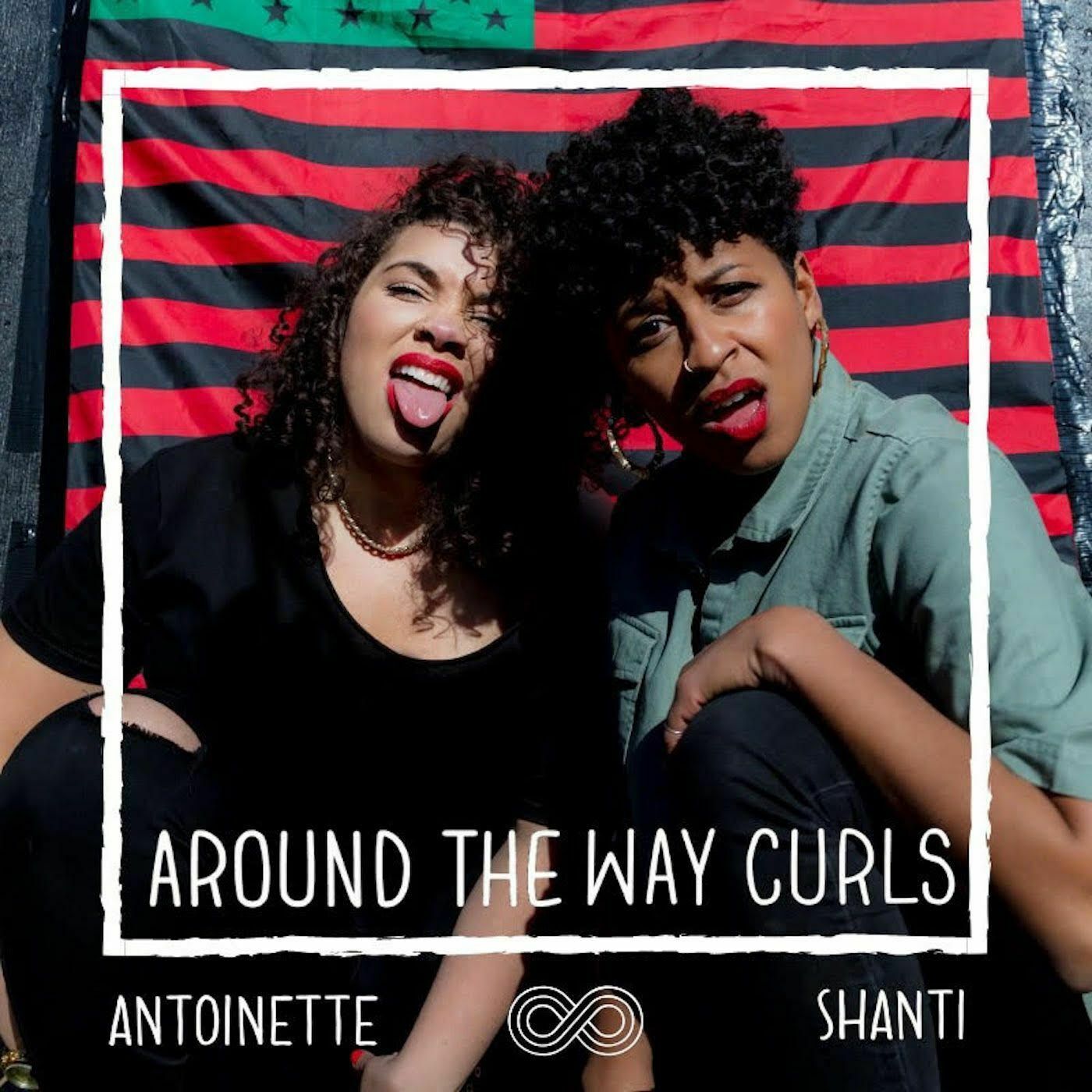
Around The Way Curls
Antoinette Lee & Shanti Mayers
LOVERS by shan
LOVERS by shan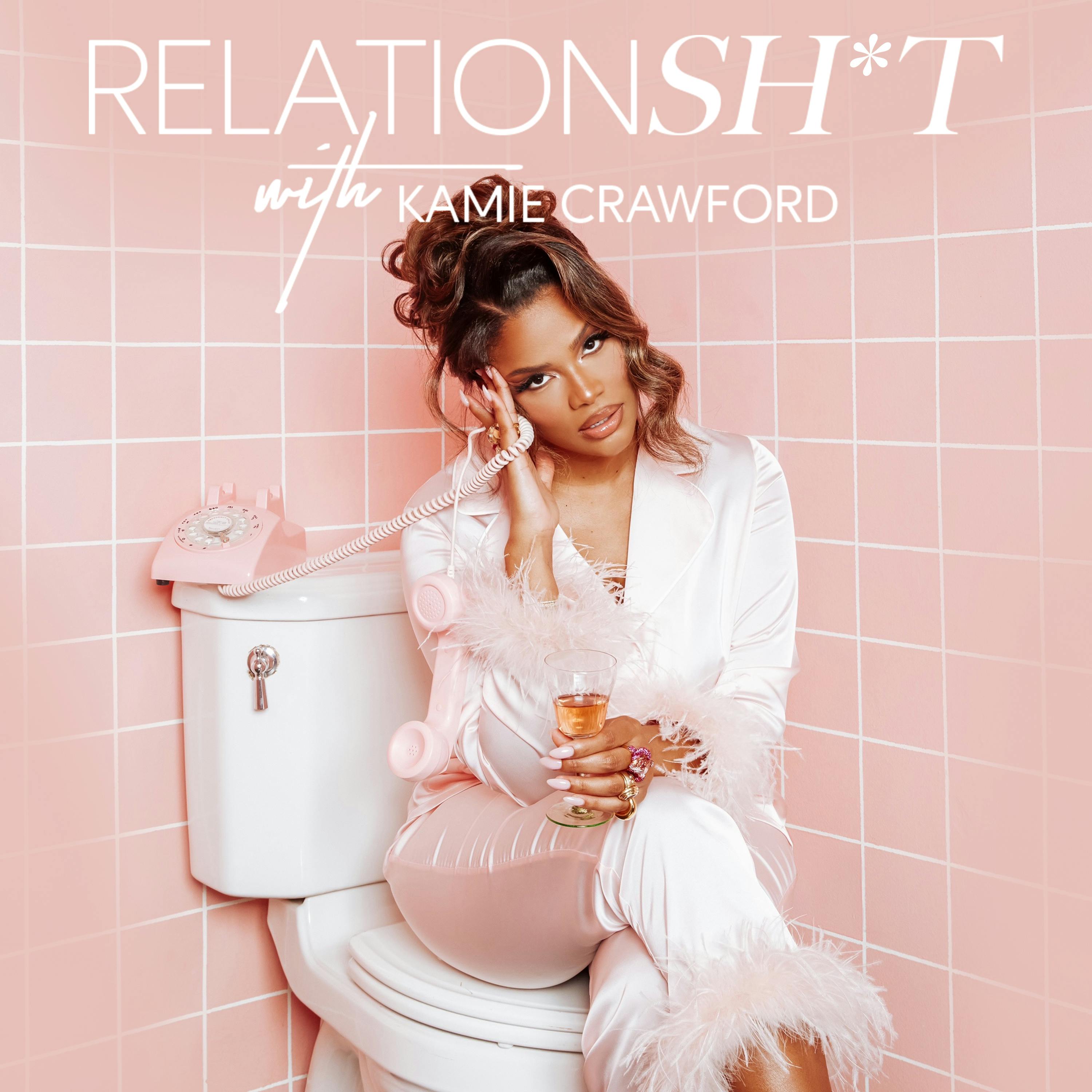
Relationsh*t with Kamie Crawford
Kamie Crawford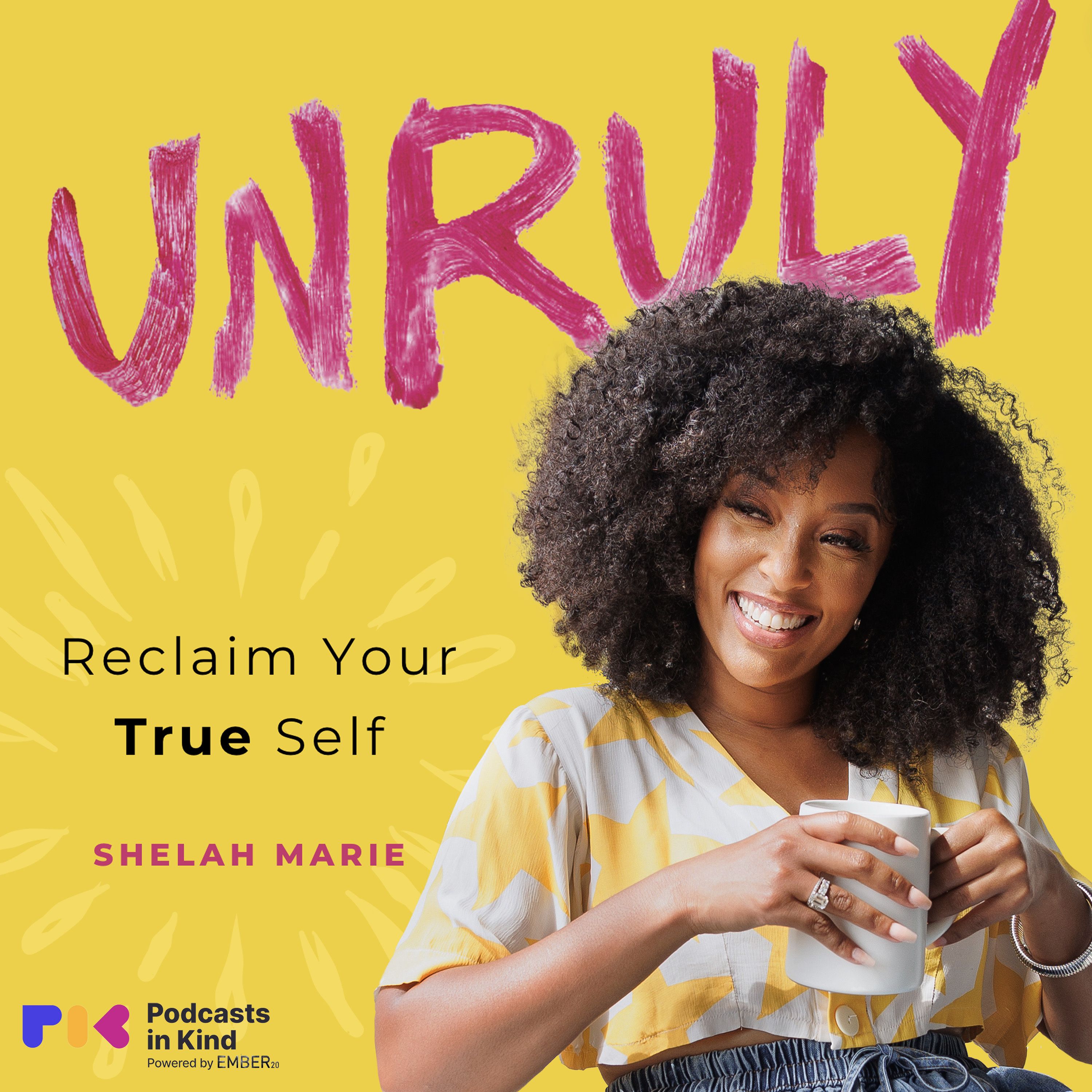
UNRULY WITH SHELAH MARIE
UNRULY WITH SHELAH MARIE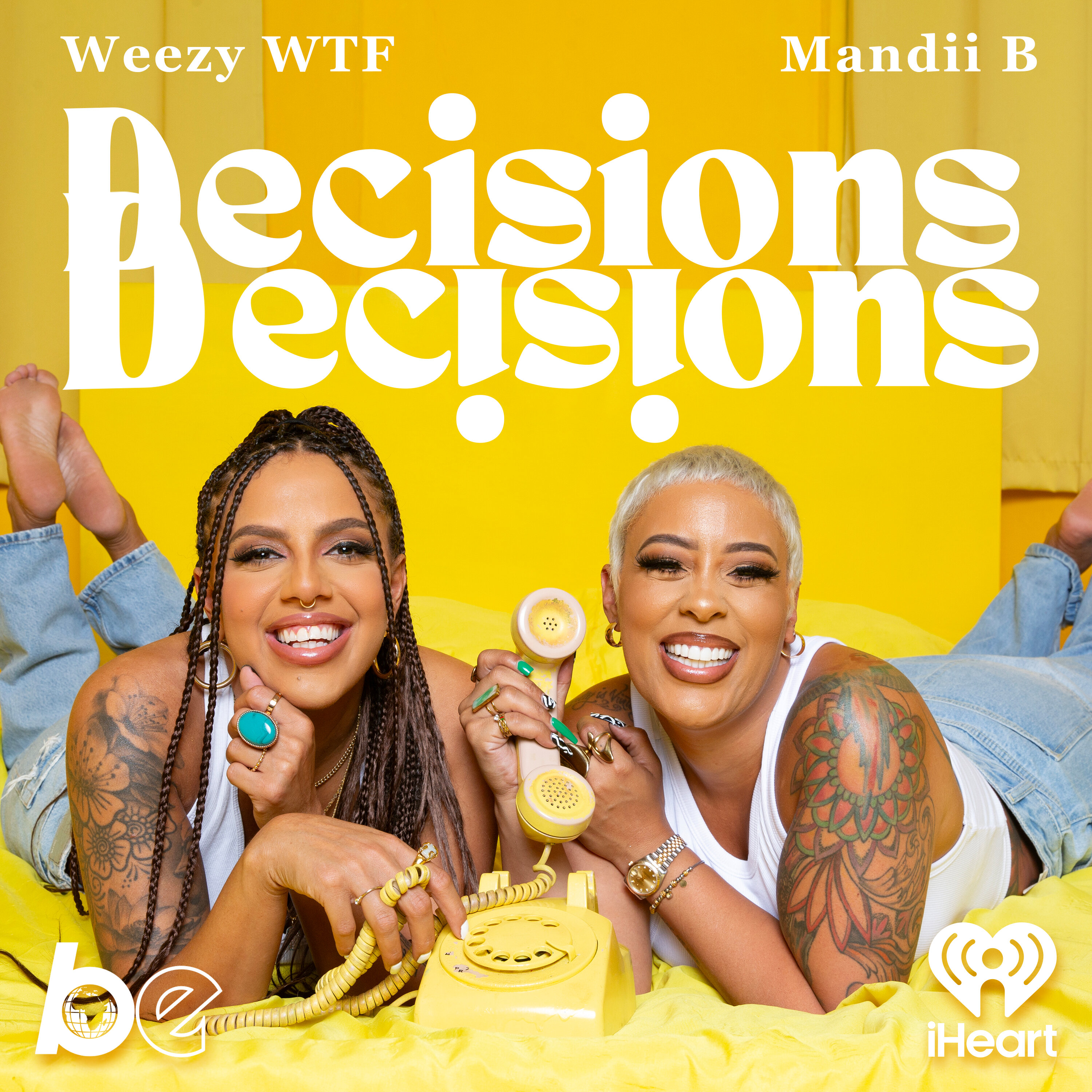
Decisions, Decisions
The Black Effect and iHeartPodcasts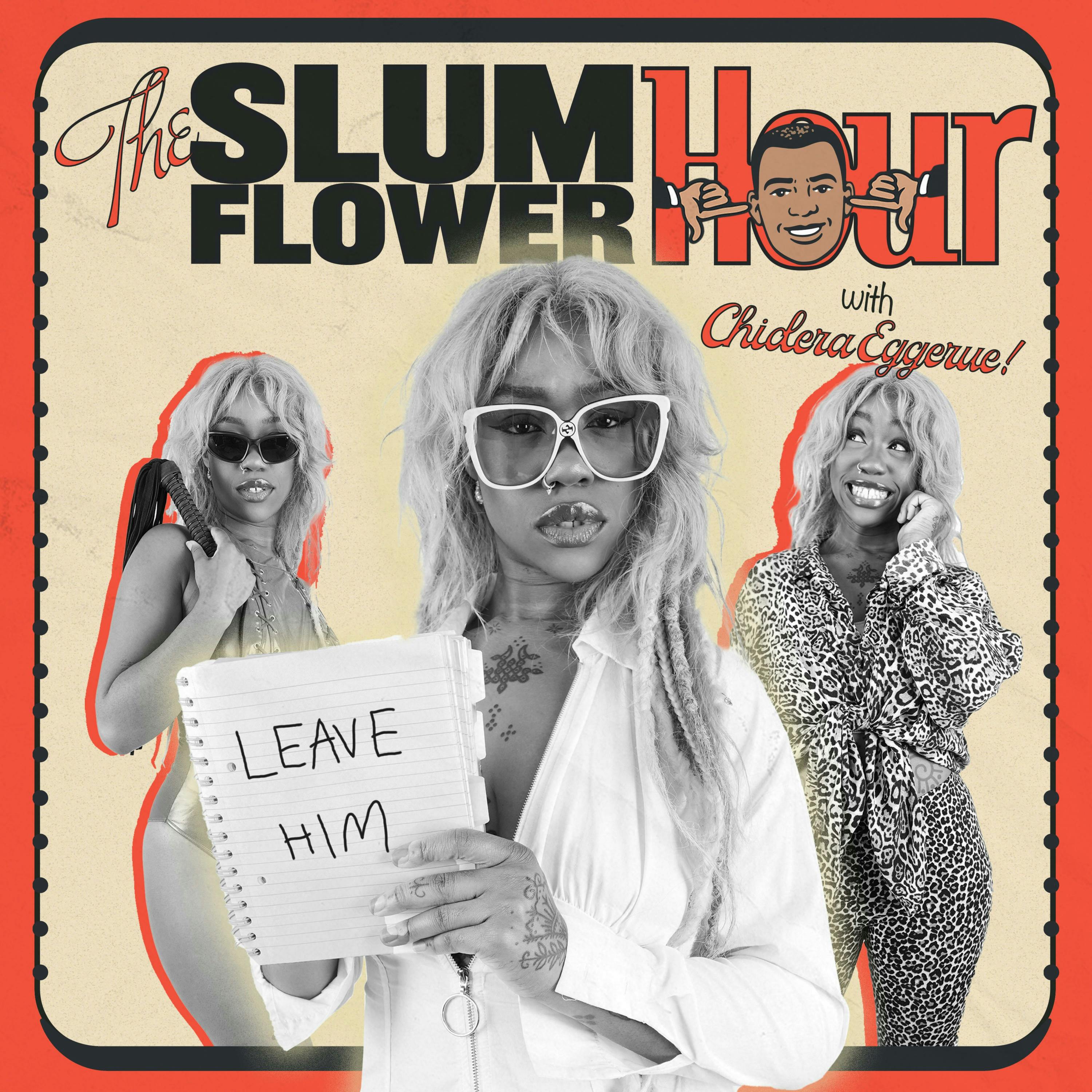
The Slumflower Hour
Chidera Eggerue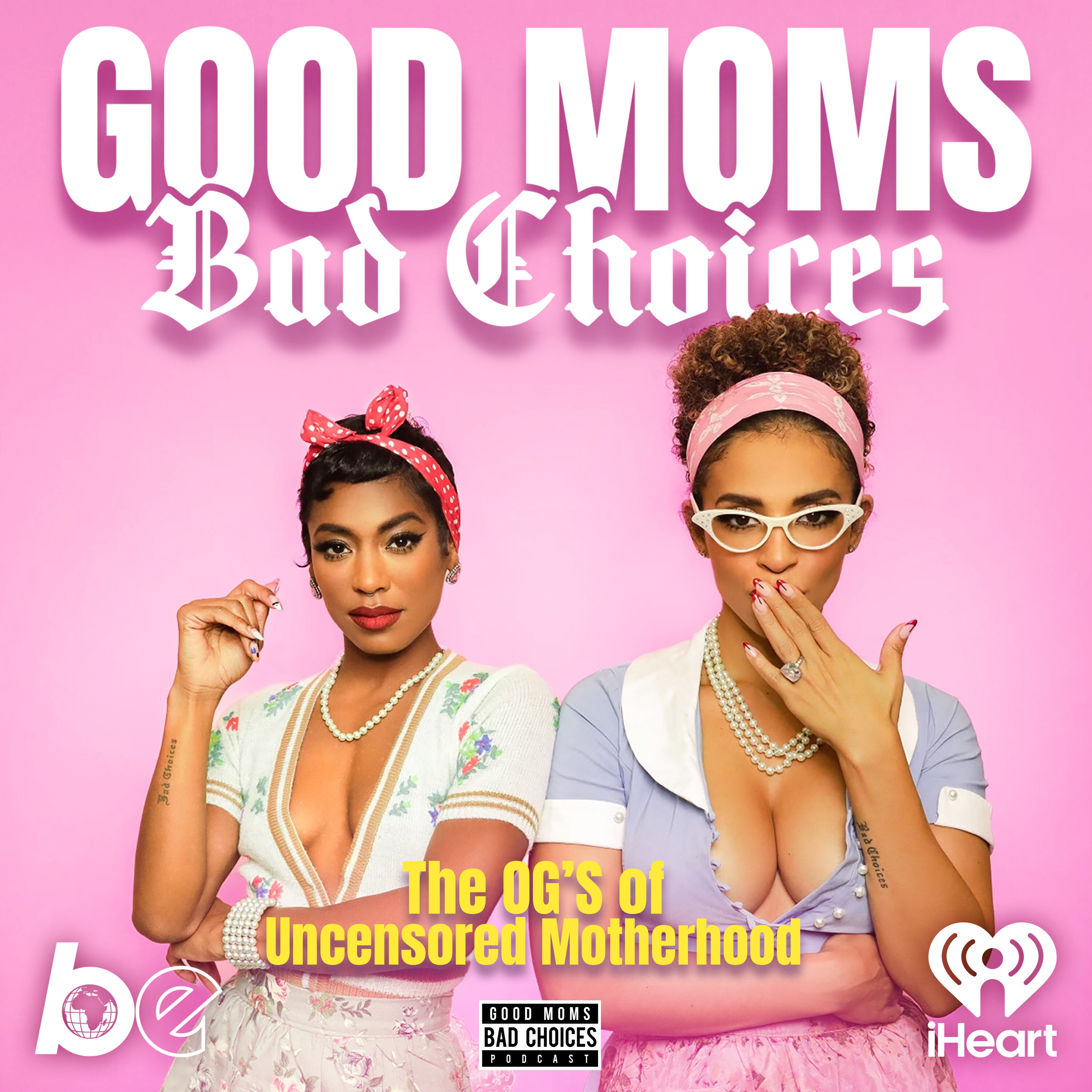
Good Moms Bad Choices
The Black Effect and iHeartPodcasts
Slay Girl Slay
Ashley Leggs
She's So Lucky
She's So LuckyUpstream
Upstream
SpeakEZ Black Renaissance Podcast
Qadry Harris, M. Div.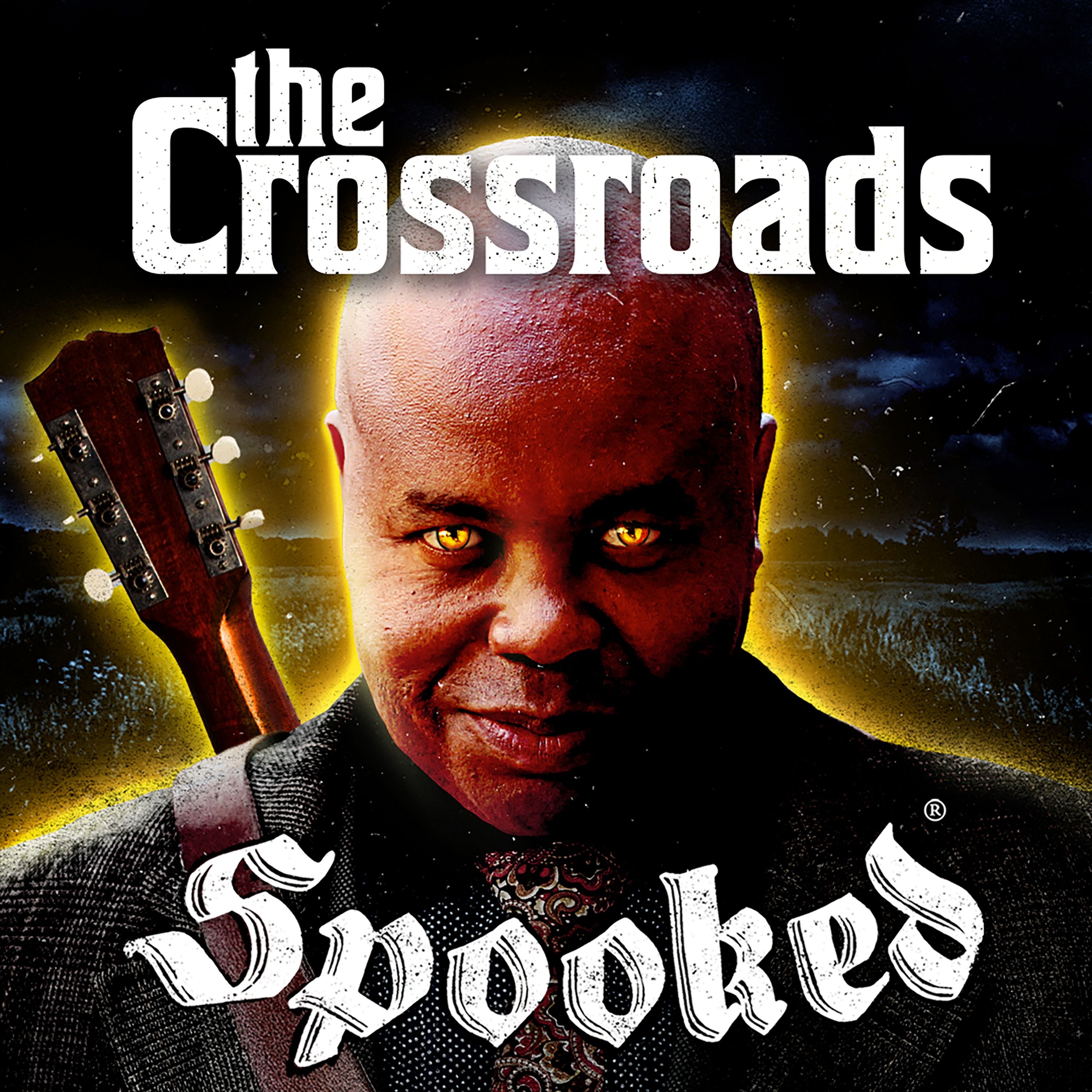
Spooked
KQED and Snap Studios
Bobo's Void
Bobo, Donavon and Mango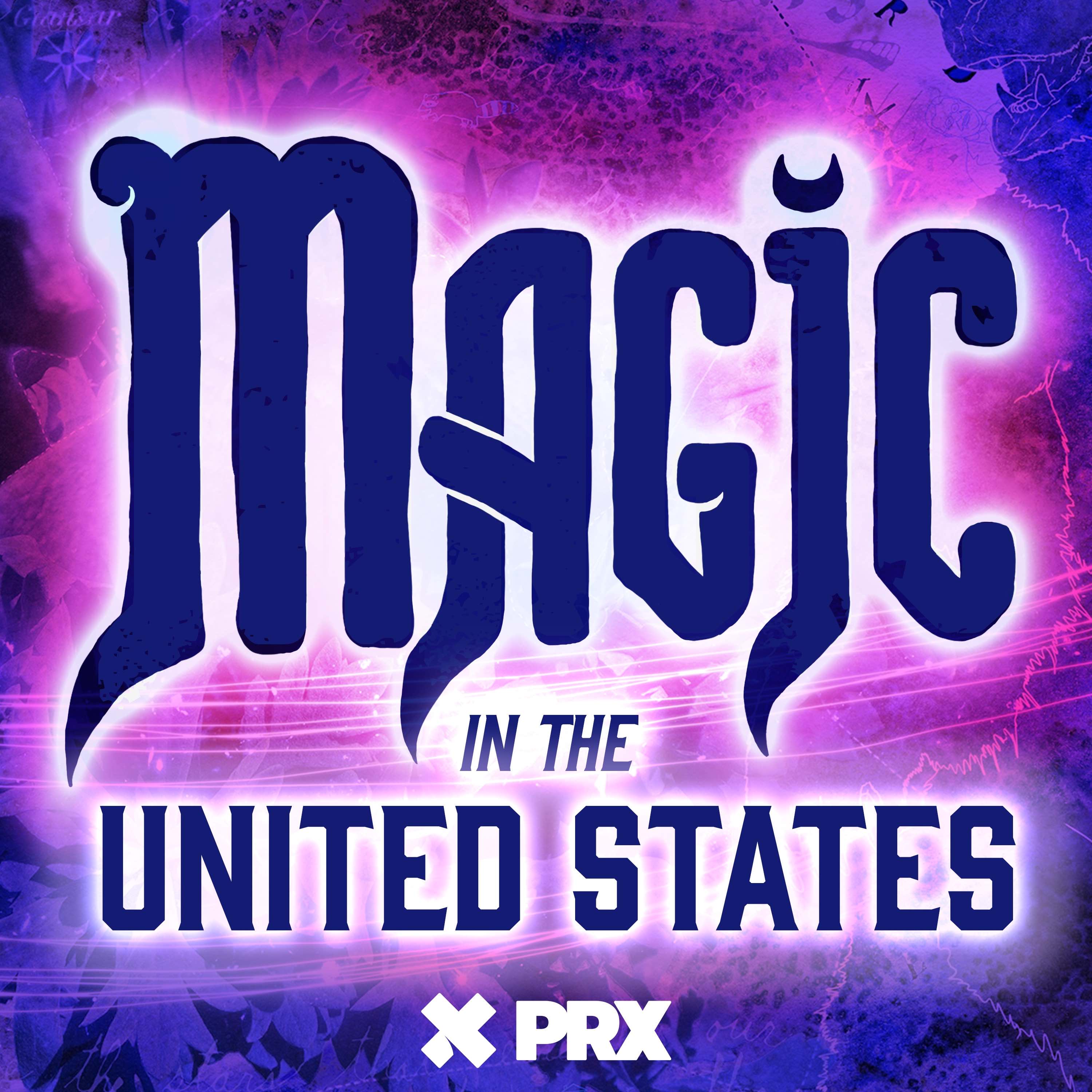
Magic in the United States
Magic in the United States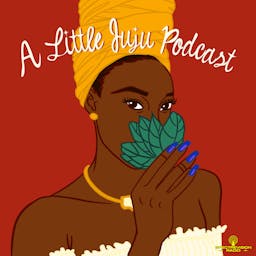
A Little Juju Podcast
SpectreVision Radio
Sensual Faith Podcast with Lyvonne Briggs
Lyvonne Briggs
Our Ancestors Were Messy
Nichole Hill
The Bankrupt Millionaire
Samia Burton
The Love Seat
Lauren Speed-Hamilton and Cameron Hamilton
Dear Franny
Francesca Hogi
Hold For Maintenance
Hold For Maintenance
CultureCon Uncut
Spotify Studios
